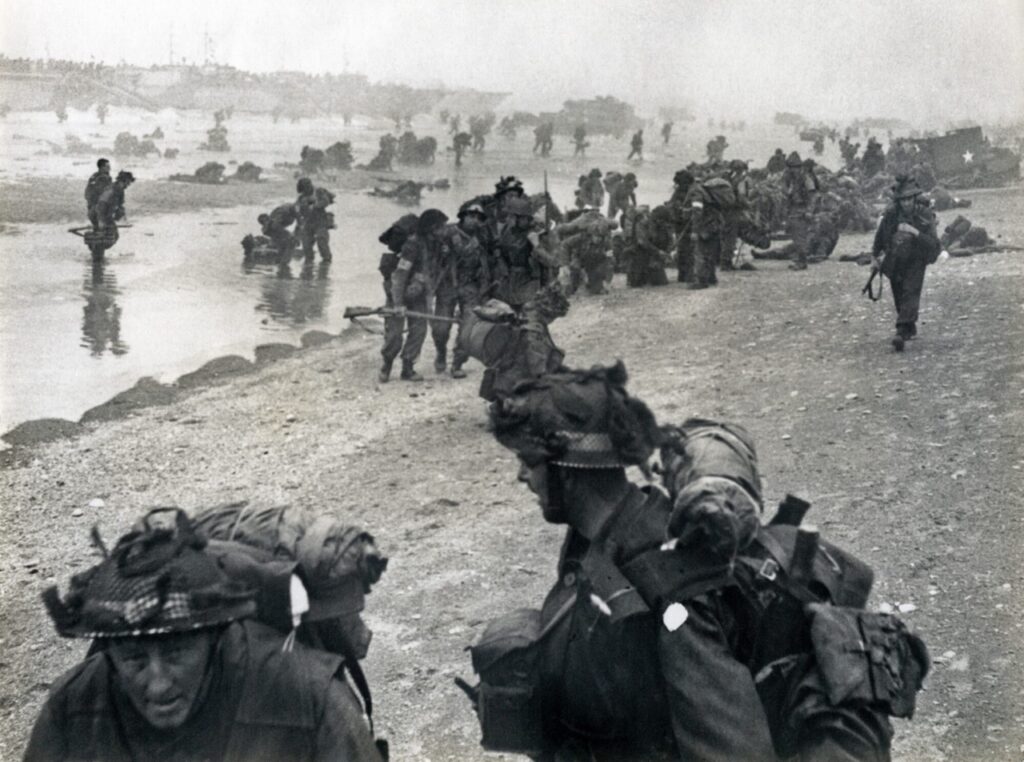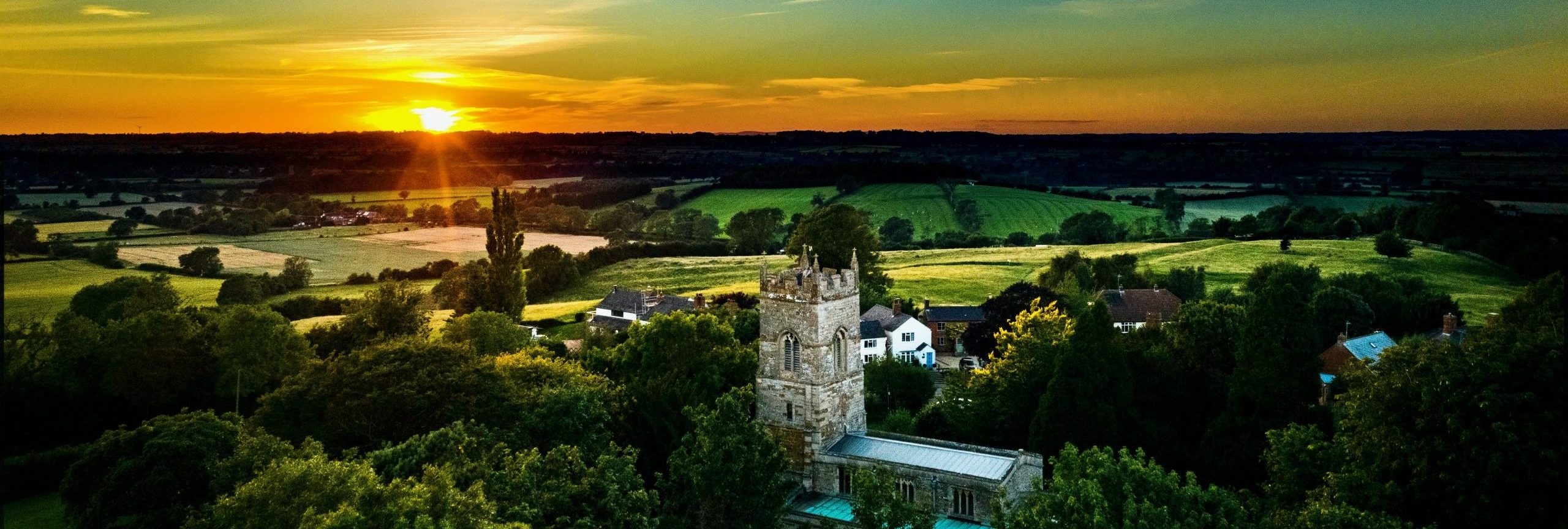Judy Hodgetts has created a special history article to commemorate the 80th anniversary of D-Day which took place on Thursday 6th June 2024. The article, together with some WW2 artefacts, were displayed at our East Farndon D-Day 80 commemoration event. Judy’s very interesting article is a must read and it includes reflections from a number of East Farndon residents. The first page is repeated below, please click this link to read the full article.
The D-Day Landings by Judy Hodgetts
In June 1944, five years after the start of World War II, France was under German occupation. On 6th June that year over 150,000 allied troops landed on 5 beaches across Normandy, northern France in what was known as the D-Day landings. The aim of this mission was to drain German resources and to block access to key military sites. Securing a bridgehead in Normandy would allow the Allies to establish a viable presence in northern Europe.
A combined naval, air and land assault, it remains the largest seaborne invasion in history. It was known as Operation Overlord, codenamed Operation Neptune and often referred to as the D-Day landings. The landings marked the start of a long and costly campaign in north-west Europe, which lasted until 30th August 1944. It ultimately convinced the German high command that defeat was inevitable.
Early on 6th June, Allied airborne forces parachuted into drop zones across northern France. Ground troops then landed across five assault beaches – Utah, Omaha, Gold, Juno and Sword. By the end of the day, the Allies had established a foothold along the coast and could begin their advance into France.
A total of 4,414 Allied troops were killed on D-Day itself, with more than 5,000 wounded. In the ensuing Battle of Normandy (the entire campaign), 73,000 Allied forces were killed and 153,000 wounded. The battle – and especially Allied bombings of French villages and cities – killed around 20,000 French civilians.
Many men and women from East Farndon served in World War II, and although we know where some men were stationed, it is unclear how many landed in Normandy on 6th June 1944. Upon their return home after the war, many men were unable to talk about the trauma they had been through.
Sadly, two men from the village (Sidney Chapman and Brigadier Denis Sanders) were killed in action during the campaign and four other men (Frederick Stanley Allen, Mick Belton, Ernie Piggin and Brigadier Sir Alex Stanier) took part in the landings and survived……….please click this link to read the full article.


